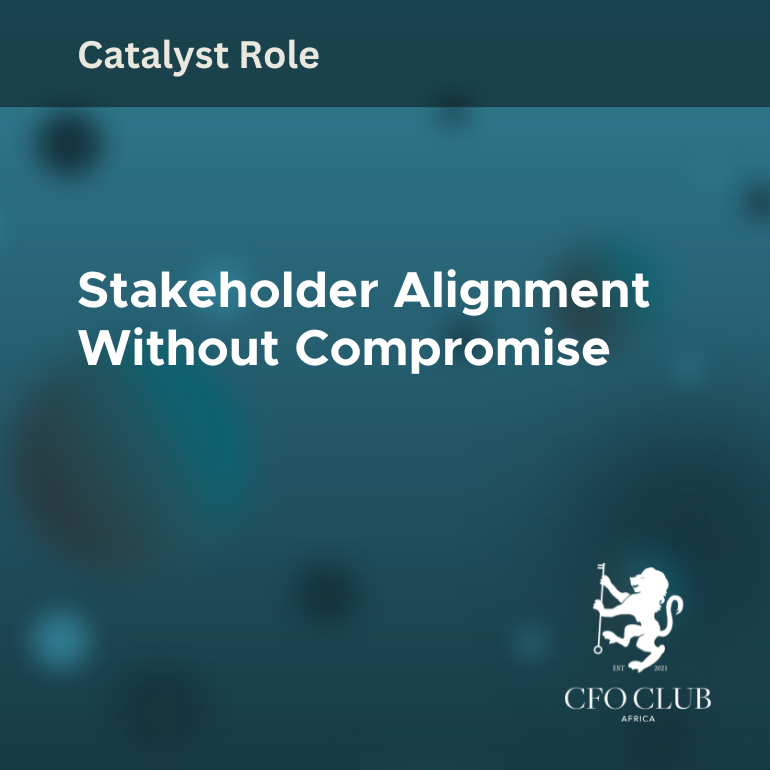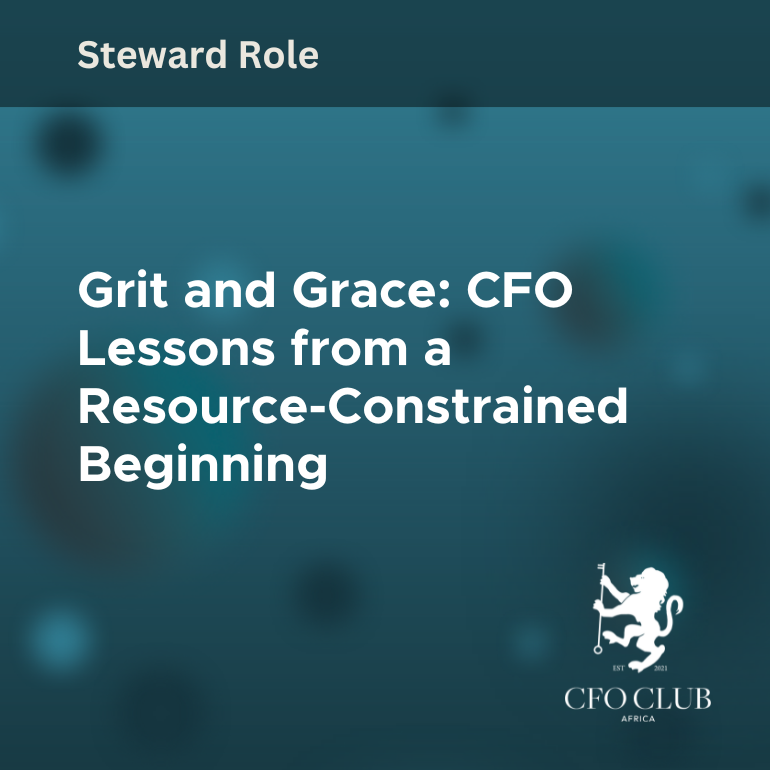Stakeholder Alignment Without Compromise
Stakeholder Alignment Without Compromise
The CFO walks a tightrope. On one side, the board demands stronger financial returns. On the other, employees want better benefits. Regulators insist on compliance, while customers expect value and speed. Investors want growth, but operational teams need breathing room. This is the CFO reality: a role no longer defined by numbers alone, but by the ability to balance, communicate, and lead through complexity.
In South Africa’s evolving business environment, this balancing act is especially challenging. Economic shifts, social inequality, talent shortages, and regulatory burdens all collide in a way that puts the CFO at the centre of competing expectations. Aligning those interests without losing credibility, or compromising values, has become a critical leadership skill.
Integrity Is Your Starting Point
When pressures build and priorities compete, integrity must be non-negotiable. It can be tempting to please whoever shouts the loudest or to chase short-term wins that look good on paper. But a CFO who consistently acts with transparency and fairness sends a clear signal: financial leadership is about sustainability, not showmanship.
Integrity means being honest with investors when projections need revising. It means refusing to sign off on rushed procurement decisions that haven’t gone through the proper checks. It means holding your ground when internal decisions threaten ethical boundaries.
In the South African context, integrity also means navigating difficult terrain, including B-BBEE compliance, legacy governance concerns, and increased scrutiny from stakeholders who have seen too much spin and too little action. The CFO often becomes the moral compass of the business, especially when others are tempted to take shortcuts.
Listening Is Your Lever
Alignment does not require everyone to agree. It requires you to understand where others are coming from. CFOs who engage with curiosity, who listen carefully before acting, are better positioned to lead effectively.
Stakeholders appreciate being heard. Employees want to know their concerns have been taken seriously. Business unit leaders want to feel that Finance understands their realities. Boards want to know you’re considering the full picture before making a call.
This could mean hosting informal budget preview sessions with operational teams, creating regular feedback loops with suppliers, or simply spending time on the ground rather than in the boardroom. These actions build insight and credibility, which ultimately makes alignment easier to achieve.
Trust Is Your Real Capital
Trust is built long before it’s needed. The strongest CFOs are trusted not only because they are technically competent, but because they consistently show up with honesty and calm.
When a crisis hits or a major change is introduced, people look to the CFO for clarity. If they already trust you, they will listen. They will give you space to explain tough calls. They will partner with you even when they do not fully agree, because your track record gives them confidence in your judgment.
This kind of trust is not won during reporting season. It grows through consistent behaviour, transparent communication, and fairness across all levels of the organisation.
Tools to Support Alignment Without Compromise
To help navigate these complexities, CFOs can adopt simple but effective practices that promote alignment while holding the line on values and quality.
1. Enhanced Stakeholder Mapping
Go beyond standard influence-interest models. Identify what each stakeholder truly values, whether it’s speed, control, innovation, cost-efficiency, or impact. Tailor your communication and negotiation strategies accordingly.
2. Clear Boundaries Framework
Define up front which areas are non-negotiable. These could include ethical standards, compliance requirements, or long-term sustainability goals. When stakeholders push for compromises, these boundaries give you a firm but respectful response.
3. Meaningful Storytelling
Use narratives that connect financial data to real-world outcomes. Instead of presenting numbers in isolation, link them to business goals, employee wellbeing, or social responsibility. When people see the bigger picture, they are more likely to align with your direction.
Leadership in the Real World
Being the CFO means more than closing books and presenting budgets. It means leading people who care about different things, making choices where there are no perfect answers, and having the strength to stay steady when tensions rise.
The best CFOs do not chase agreement for its own sake. They pursue alignment built on trust, understanding, and clear principles. In doing so, they earn something far more powerful than compliance: they earn respect.





